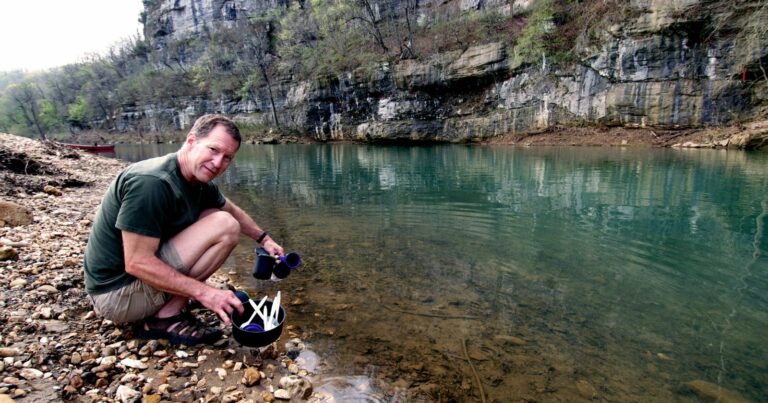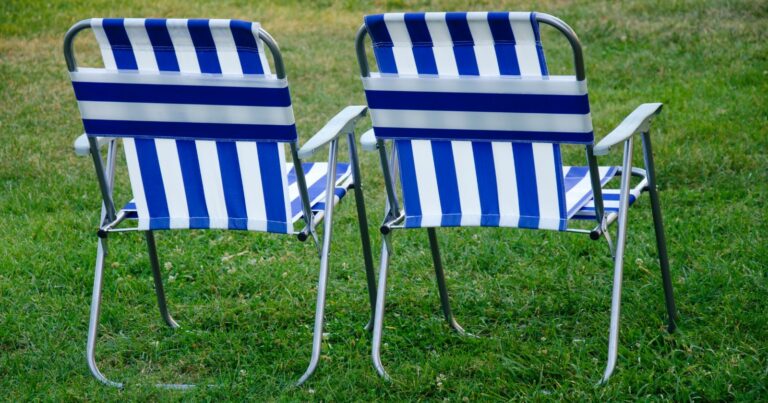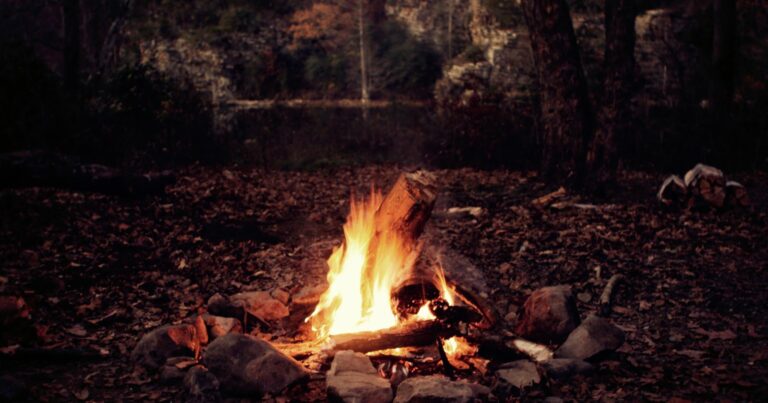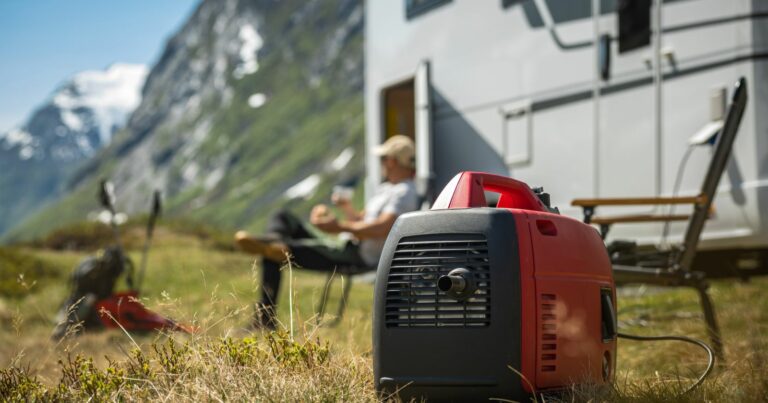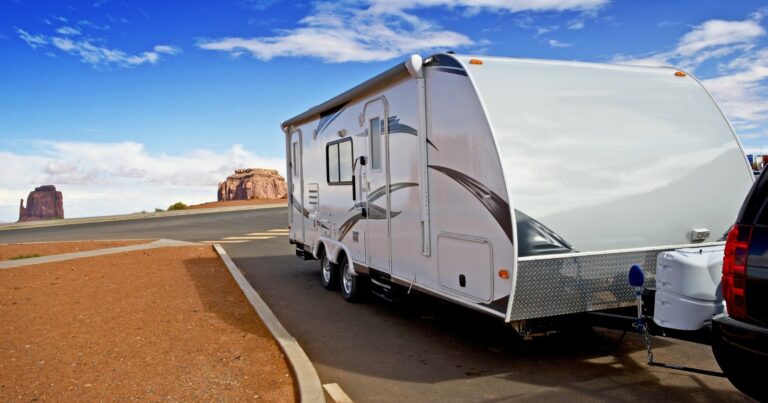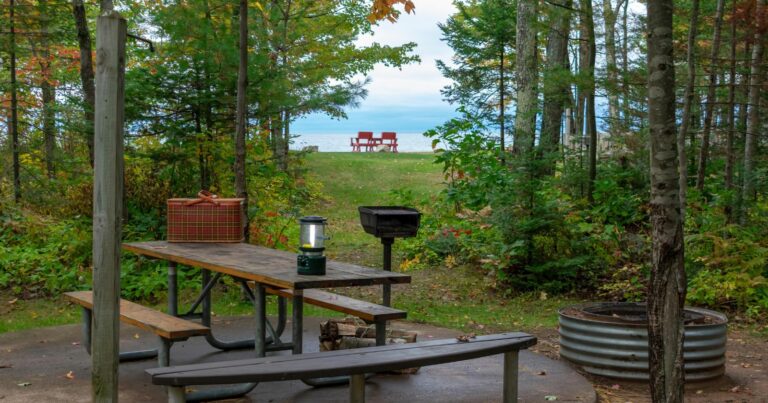What to Do Camping When You Can’t Have a Fire
The sun sinks below the distant ridge as you finish setting up your tent. You take a deep breath of the fresh, pine-scented air, ready to unwind from your busy week. But as darkness falls, you realize you can’t light that cozy campfire you’d been envisioning. Due to dry conditions, campfires are currently banned in this area. Now what?
Even without a crackling fire, you can still have an amazing camping trip if you plan ahead. Focus on the soothing sounds of nature, the brilliance of the starry night sky, and quality time spent with your companions.
First, double check the exact fire restrictions so you know what’s prohibited. Then, bring along battery-powered lanterns and strings of lights to illuminate your no-fire campsite once the sun goes down.
Prep your meals ahead of time, choosing no-cook foods or dishes you can easily make on your portable camp stove. Keep some blankets handy for chilly evenings along with cards and games to pass the time.
While you may have to forgo roasting marshmallows or gazing into flickering flames, you can still appreciate being off-grid, surrounded by fresh air and majestic wilderness. Spend your days hiking through shady forests and fishing in crystal clear streams. Then retire to your cozy tent each night to relax and reset.
With a little prep, banning campfires doesn’t have to ruin your trip. Be flexible, focus on nature’s beauty, and make the most of your time outdoors. Leaving no trace becomes even easier without a fire to put out.
Now let’s get into more ideas for enjoying a fire-free — but still fantastic — camping getaway…
Accept the Rules and Adjust Your Expectations
First things first – double check the exact fire restrictions for the area so you know precisely what’s allowed and what’s prohibited. Temporary fire bans are implemented for good reason – to prevent forest fires and protect the land during dry, risky conditions.
So accept the rules and adjust your expectations. Focus less on what you can’t do and more on what you still can. Appreciate spending time outdoors disconnected from technology and immersed in nature. And try to embrace the peacefulness of a quieter, fire-free campout.
Prep Your Camp Meals Accordingly
You likely pictured yourself cooking dinner over an open flame. But with no campfire, you need to rethink your meals. Here are some tips:
- Bring a portable camp stove – A small propane- or butane-fueled stove offers a great alternative for cooking. Boil water for freeze-dried meals or sauté veggies and meat.
- Plan no-cook meals – Consider foods that don’t require any cooking at all – sandwiches, salads, fruits, trail mix, etc. Get creative with no-cook recipes.
- Pre-make campfire meals – Foil packs of chicken & veggies or tin foil dinners can be heated on a stove instead of over a fire.
- Use a grill – If banned in the area, propane grills offer similar camp cooking.
- Try one-pot meals– Foods like stews, pasta, or rice only require one pot on the stove. They’re easy and minimize clean-up.
Light Up Your Fire-Free Campsite
Sit around a lantern instead of a campfire. String up hangs of Edison bulbs or fairy lights to illuminate your no-fire campsite and create ambience once the sun goes down.
Headlamps, flashlights, and luci lights are also great portable lighting. And don’t forget the value of the moon and stars! Your eyes will adjust to the lower light.
Stay Warm and Cozy
Nights can get chilly without a campfire’s heat. Here are some tips to stay warm and comfy:
- Pack extra blankets and sleeping bags rated for colder temps
- Bring hot water bottles or rechargeable hand warmers
- Drink something soothing and hot like tea, coffee, or cocoa
- Get up and move around to generate body heat
- Wear layers and winter hats – don’t forget wool socks!
Pass the Time with Camp Activities
A campfire provides entertainment. Without one, bring other activities to fill the time and enjoy your surroundings:
- Games – Cards, bingo, Jenga, Cornhole, or mini golf
- Books/magazines – Reading by lantern light with a cozy blanket
- Music/podcasts – Download playlists or podcasts to listen to
- Art supplies – Draw, color, or paint scenes from the campground
- Nature journal – Record notes and sketches from hikes and explorations
Take Advantage of Recreation
While you may miss the campfire, don’t forget the main draw of camping is experiencing and connecting with nature.
- Do more fishing, swimming, hiking, and exploring during the day.
- Look for ranger-led educational programs or guided activities.
- Enjoy sunrises and sunsets from scenic outlooks.
- Stargaze – with no campfire, the night sky will look even more brilliant.
Safely Cook over Portable Stoves
Taking proper safety precautions is key when using portable stoves in place of campfires. Follow these tips:
- Clear away dry leaves and brush – Stoves can still spark fires. Clear flammable debris from around the stove.
- Use on a flat, solid surface – Position your stove on a leveled rock or surface, not directly on the ground.
- Watch the wind – Strong winds can blow stoves over and spread flames. Shield your stove if needed.
- Supervise at all times – Don’t leave a hot stove unattended, especially with kids and pets around.
- Have water on hand – Keep a pot or bottle of water nearby in case of emergencies.
- Let cool before changing canisters – Allow the stove and canisters to completely cool before swapping out propane tanks.
Embrace the Peace and Quiet
No crackling fire means more opportunities to appreciate nature’s quiet sounds. Enjoy the gentle breeze in the trees, hooting owls, chirping crickets, croaking frogs, and whatever else the wildlife is up to.
Breathe in the fresh, pine-scented air, relax, and unwind. Allow your mind and body to recharge without the constant stimuli of modern technology and city noise.
Leave No Trace
Camping without a fire makes it easier than ever to adhere to Leave No Trace principles. You don’t have to put out a fire or scatter ashes. Simply pack out everything you brought in. Follow any campground policies, and be extra diligent about picking up all trash and leftover food.
Enjoy Your Fire-Free Campout!
Campfires hold nostalgic importance for many campers. But fire bans don’t have to ruin your trip. With the right mindset and preparations, you can still have an amazing time camping sans fire.
Savor the peaceful solitude, focus on recreational activities, and embrace the quieter moments to reset. Don’t dwell on what’s prohibited – make the most of what’s allowed. Before you know it, you’ll be back home already planning your next fire-free camping getaway!
So get out there and start your no-fire adventure. Create wonderful new memories with Mother Nature as your guide. You just may find a new appreciation for fire-free camping!


